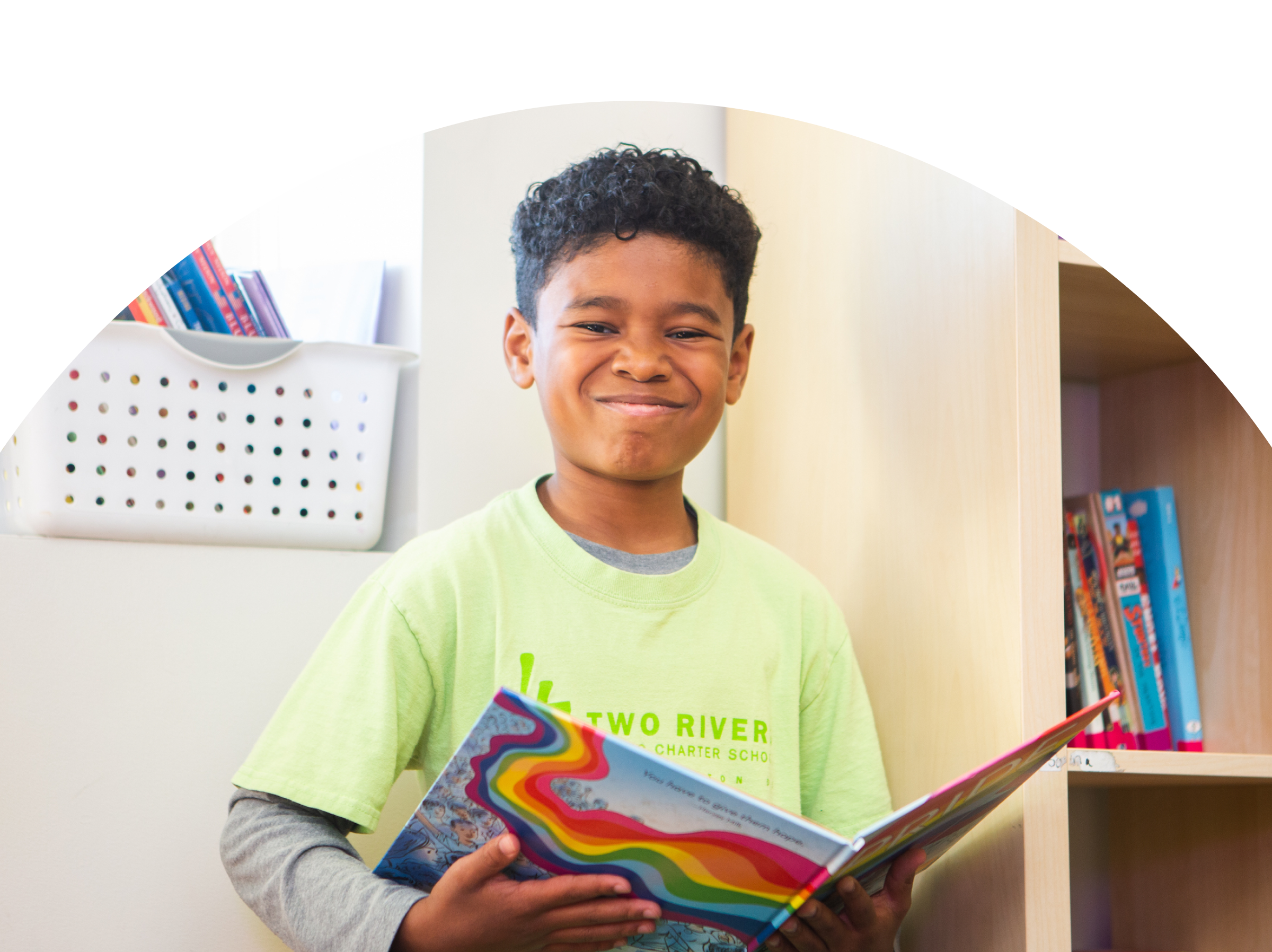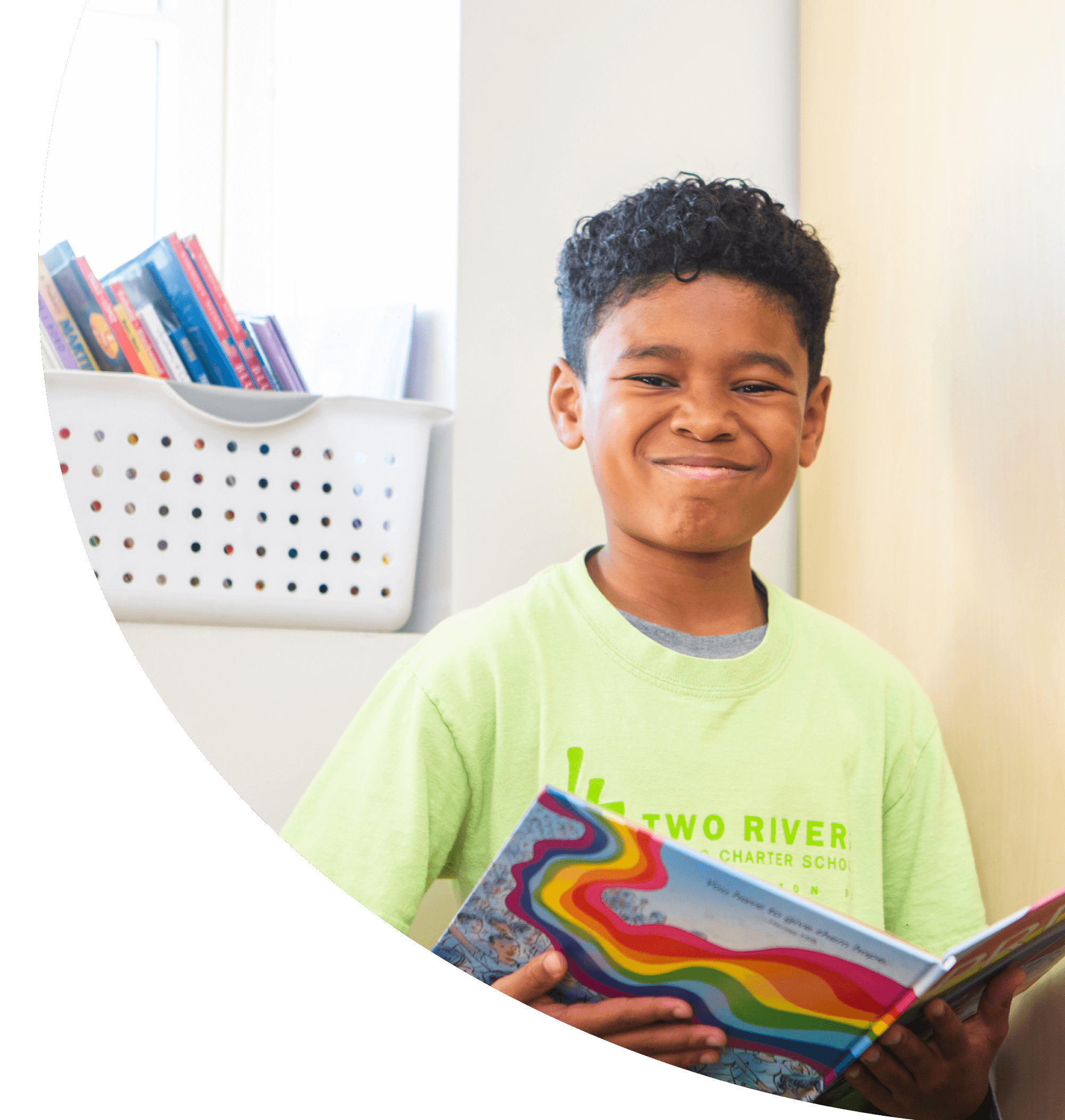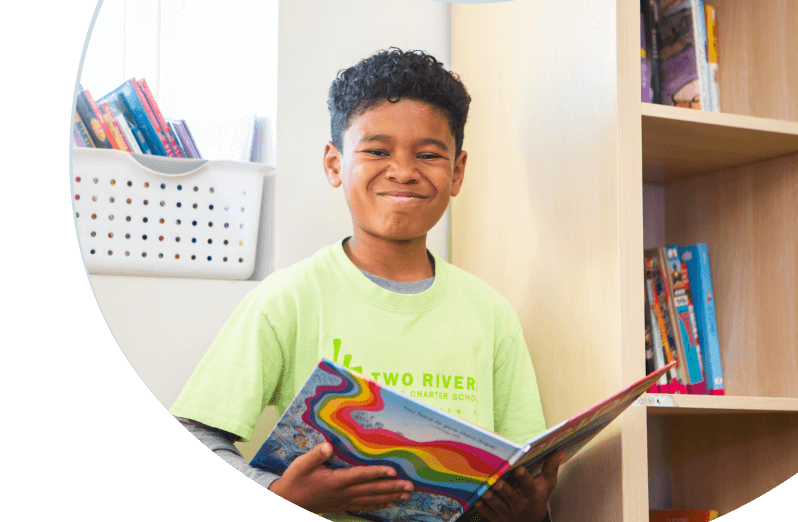CommonLit en los medios

New Features from Literacy Tool Continue to Help Struggling Readers Manage Difficult Text
Education World
January 20, 2017
In addition to the text sets, CommonLit has introduced a guided reading mode that focuses on ensuring that students of all reading levels are able to follow along with and comprehend complex texts.
CommonLit Releases New Features That Offer Lessons on Literacy Reading and History
THE Journal
January 19, 2017
Text sets cover a range of historical, cultural and political topics and include relevant reading passages from a variety of genres. Topics include “Modern Democracy in America,” “Native American History,” “The American Revolution,” “Immigration” and “The Civil Rights Movement.”
This Constellation of Groups Fighting Urban Poverty Just Got $1 Million in Funding
Fast Company
January 11, 2017
"Fix one city and you may change the world. After all, more people than ever are flocking to metro areas: more than 75% of the globe’s population is expected to be urban by 2050. Figure out how to help the underprivileged in just one of those zones, the theory goes, and you can transport it elsewhere. If everyone did that, there would be a lot of societal Band-Aids to go around. The Future Cities Accelerator, a partnership between The Rockefeller Foundation and Unreasonable Institute, has awarded $1 million to a series of groups willing try."
Feature Rich Literacy Resource Offers Superb Support for Readers (REVIEW)
Common Sense Education
November 2016
"CommonLit's adaptive reading toolbar makes text accessible for students at a variety of reading levels and language abilities. It's perfect for English language learners and struggling readers. Every passage -- printed in PDF format or accessed online -- includes footnotes with vocabulary words and essential background information that is critical for kids to understand when reading a passage. The included discussion questions get students thinking critically about text during independent reading and beyond. Thinking about reading is further encouraged by text-dependent questions that are included with each passage."
When Michelle Brown, a former teacher in rural Mississippi, lacked the books she needed in her high-poverty middle school three years ago, she decided to create a resource of her own. CommonLit, the nonprofit website Brown founded in 2013, has since attracted thousands of 5th-to-12th grade teachers and readers with its free online library.
Commonlit.org, developed by former Unicorn Michelle Brown, is an online resource that encourages literacy. Educators and families can use the program to give students reading assignments and quizzes — and it’s all free.
Last week, the United States Department of Education (DOE) doled out $26 million in grants to support literacy in high-needs schools. Among the recipients is a technology nonprofit that delivers free literacy resources and progress tracking tools for students in grades 5–12.
CommonLit CEO Discusses First-Of-Its-Kind Literacy Tool That Supports Students of All Reading Levels
Education World
October 12, 2016
Inspired and committed to doing her part to close the “digital divide” that affects so many underprivileged children in the U.S., CommonLit founder Michelle Brown is providing her first-of-its-kind tool at no cost to teachers and parents. This innovative literacy tool helps students access a diverse collection of texts—regardless of their reading level or zip code.
CommonLit scores a $3.9 million grant to help students master reading skills online, for free
TechCrunch
October 5, 2016
A tech non-profit called CommonLit won a $3.89 million grant from the Department of Education to develop software and content that helps students read well enough to graduate from high school, and succeed in their careers or college. The grant was part of a $26 million initiative by the D.O.E. to support libraries and non-profits with innovative approaches to literacy.
Teacher from Rural Community Launches Free Literacy Tool for Students of All Reading Levels
Education World
September 21, 2016
Created by Michelle Brown, a former teacher from a high-poverty, rural school district in Mississippi, CommonLit was designed to offer all students—regardless of their economic status—a chance to access quality literacy tools by assessing the quality materials the education technology market has to offer.
As librarians, when we gear up for a new school year, it’s exciting to have a few new strategies for engaging learners with literature and for building our own literature discovery/selection toolkit. You’ll absolutely want to introduce CommonLit to your classroom teachers and you’ll absolutely use it yourself to make curricular discoveries and to help teachers make connections.
With the growing need to incorporate technology in learning, it is more important than ever that teachers have resources that are both free and fun for students. Computer skills are necessary to be a career and college-ready, and it is equally crucial to give students opportunities to access online educational materials. As a 6th grade English teacher, I want online materials that are rigorous enough to challenge my students and enhance their learning, and engaging enough to keep their attention for longer than five minutes.

